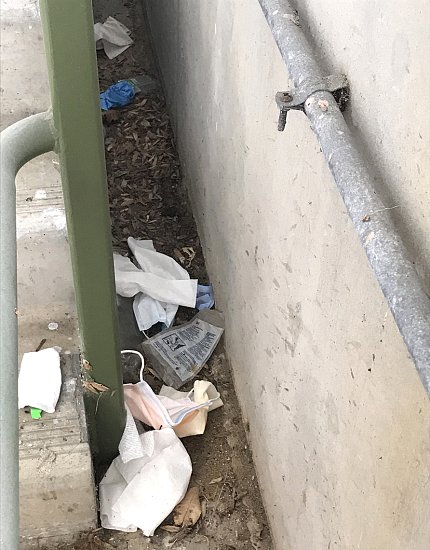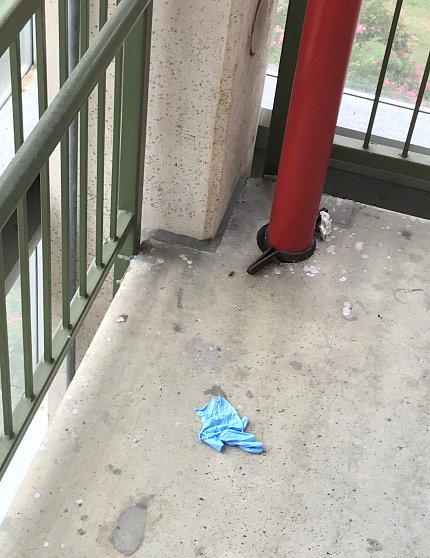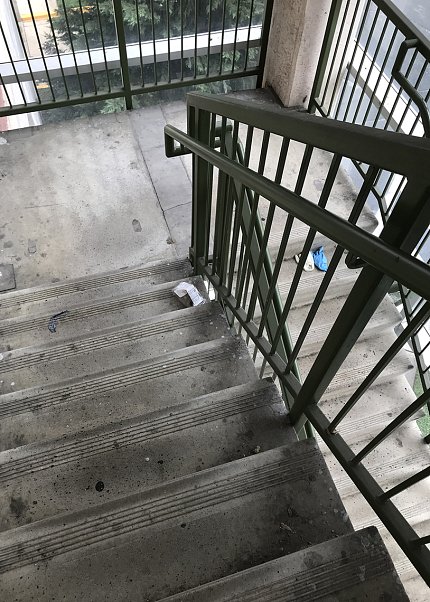When a Safety Measure Becomes a Public Health Hazard

Photo: Elangovan Boobalan
It’s clear that wearing masks and face coverings helps save lives. Everywhere we go, in grocery stores, at work, and virtually all public places, the person not wearing a mask often stands out.
You’ve probably even become accustomed to a routine of washing your face covering or throwing away your surgical mask after returning home. If so, good for you.
NIH has made it even easier to dispose of your face covering if you need to doff it before you leave work. Additional waste receptacles have been placed across all NIH campuses, outside offices, laboratories and inside parking garages. These “step cans” allow a safe, hands-free option for discarding your mask.

Photo: Elangovan Boobalan
Unfortunately, some members of the NIH community are being inconsiderate and not taking advantage of this added convenience. Housekeeping staff and employees alike continue to witness haphazard littering of masks, which makes a public health problem of what is meant to be a safety measure.

Photo: Elangovan Boobalan
NIH is taking extraordinary steps to ensure our facilities are a safe place to work. In addition to the added step cans, increased frequency of waste removal and cleaning of high-touch, high-traffic areas, the Office of Research Facilities will begin more frequent power washing of parking garages on the Bethesda campus. This should help, not only with litter, but also to improve general cleanliness. Ultimately, it still comes down to each individual employee being considerate and ensuring that his or her mask or face covering makes it into a receptacle.
If you need help finding a convenient location, waste management staff has established a waste collection site map (https://nems.nih.gov/Documents/2020%20MPW%20Step%20Can%20Locations.pdf) and comprehensive guide (https://nems.nih.gov/environmental-programs/Pages/Temporary-Changes-in-NIH-Waste-Management-Services.aspx) to all the recent changes related to proper waste disposal at NIH.
